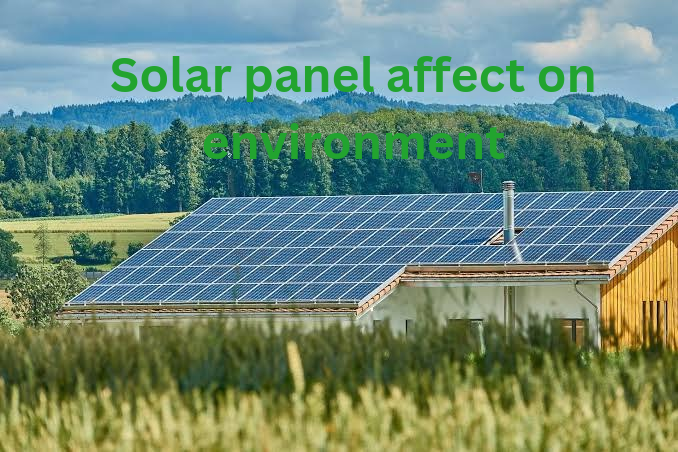
Solar panels can have both positive and adverse environmental impacts.
1. **Positive Impacts**:
Solar panels produce electricity without releasing greenhouse gases. This reduces carbon footprints.
– **Renewable Energy source**: They use sunlight, which is a resource that is virtually limitless, and reduce dependence on finite fuels.
Solar power increases energy security by reducing reliance on imported fuels.
2. **Negative Impacts**:
– **Manufacturing impact**: The production of solar panels requires mining, which may cause emissions and environmental degradation.
– **Land use**: Large solar installations can require a large amount of land, which could have an impact on ecosystems and agriculture.
Solar panels are made of materials that must be disposed or recycled properly to avoid contamination.
Solar panels are a positive contribution to climate change. However, the environmental impact of solar panels depends on many factors, including manufacturing practices, installation locations, and disposal methods at the end of their life cycle.